Remote Server Administration Tools (RSAT) enable administrators to manage Windows Server roles and features from a Windows 11 PC. While these tools aren't installed by default, adding them to your system is a simple process. This guide outlines two methods to install RSAT on your Windows 11 computer.
Install RSAT in Windows 11 Using PowerShell
If you prefer command-line tools, PowerShell offers a quick and efficient way to install RSAT components. You can opt to install all tools at once or select individual components based on your requirements.
Step 1: Open PowerShell with administrative privileges. Right-click the Start Menu icon on the taskbar and choose Windows Terminal (Admin) from the context menu.
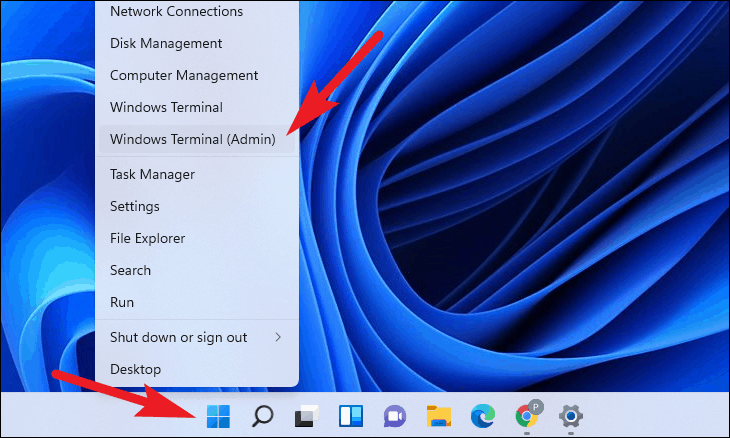
If prompted by the User Account Control, confirm the action. If you're not logged in as an administrator, enter the admin credentials. Otherwise, click Yes to proceed.
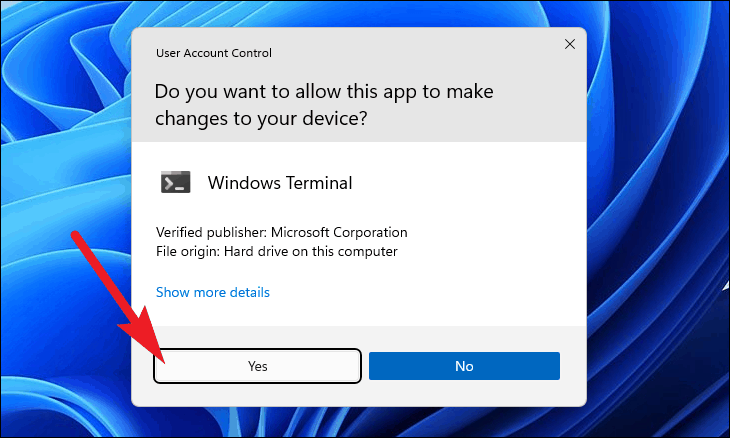
Step 2: In the PowerShell window, view the available RSAT components and their installation status by entering:
Get-WindowsCapability -Name RSAT* -Online | Select-Object -Property DisplayName, State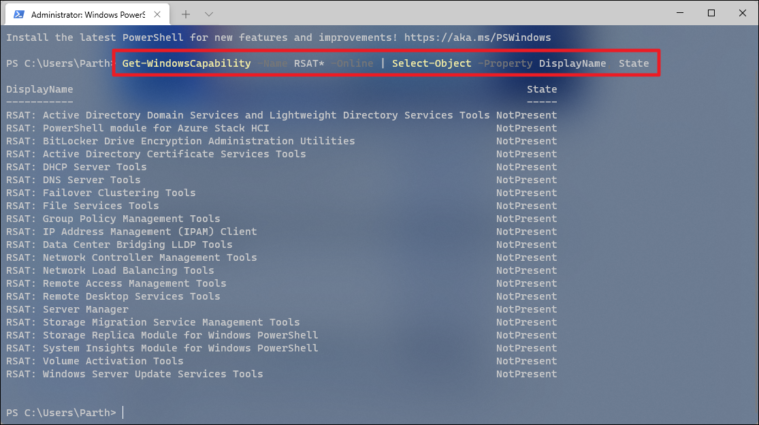
Install All RSAT Components at Once
Step 3: To install all RSAT components simultaneously, execute the following command:
Get-WindowsCapability -Name RSAT* -Online | Add-WindowsCapability -Online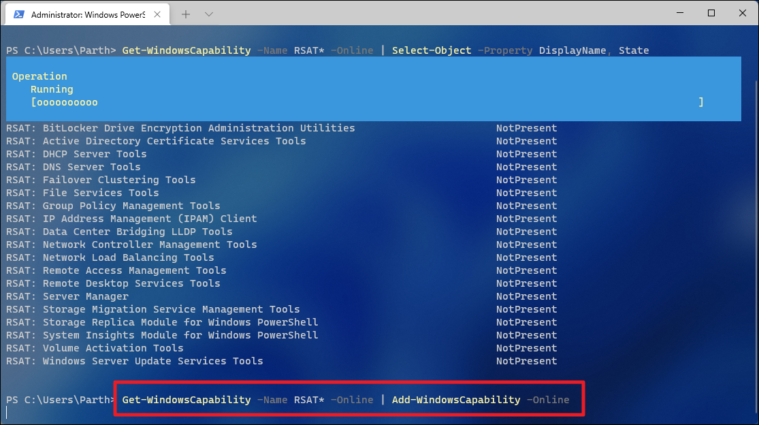
The installation process will begin and may take several minutes to complete, depending on your system and internet speed.
Install Specific RSAT Components
Step 4: If you only need certain RSAT tools, you can install them individually. Use the following command, replacing <tool_name> with the component's system name:
Add-WindowsCapability -Online -Name "Rsat.<tool_name>.Tools"Below is a table of available RSAT components and their corresponding system names:
| Tool Display Name | System String | Complete Argument |
| Active Directory Domain Services and Lightweight Directory Services Tools | ActiveDirectory.DS-LDS | Rsat.ActiveDirectory.DS-LDS.Tools |
| BitLocker Drive Encryption Administration Utilities | BitLocker.Recovery | Rsat.BitLocker.Recovery.Tools |
| Active Directory Certificate Services Tools | CertificateServices | Rsat.CertificateServices.Tools |
| DHCP Server Tools | DHCP | Rsat.DHCP.Tools |
| DNS Server Tools | DNS | Rsat.DNS.Tools |
| Failover Clustering Tools | FailoverCluster.Management | Rsat.FailoverCluster.Management.Tools |
| File Services Tools | FileServices | Rsat.FileServices.Tools |
| Group Policy Management Tools | GroupPolicy.Management | Rsat.GroupPolicy.Management.Tools |
| IP Address Management (IPAM) Client | IPAM.Client | Rsat.IPAM.Client.Tools |
| Data Center Bridging LLDP Tools | LLDP | Rsat.LLDP.Tools |
| Network Controller Management Tools | NetworkController | Rsat.NetworkController.Tools |
For example, to install the DHCP Server Tools, run:
Add-WindowsCapability -Online -Name "Rsat.DHCP.Tools"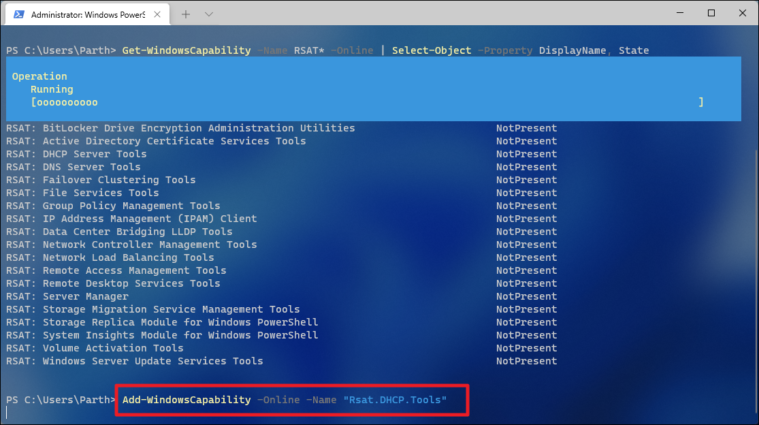
Install RSAT on Windows 11 from Settings
If you prefer a graphical interface, you can install RSAT tools through the Settings app.
Step 1: Open the Settings app by clicking the Start Menu icon and selecting Settings.
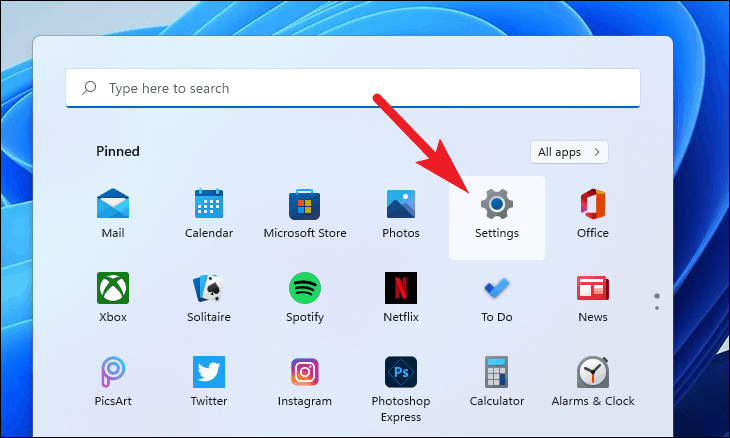
Step 2: In the Settings window, click on Apps in the left sidebar.
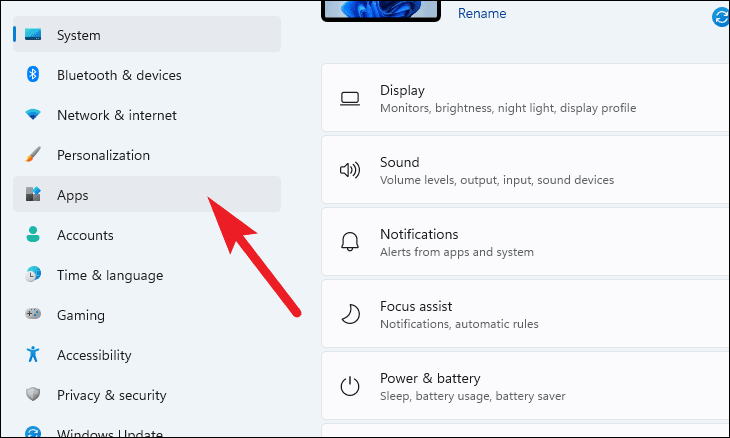
Step 3: On the right side, select Optional features.
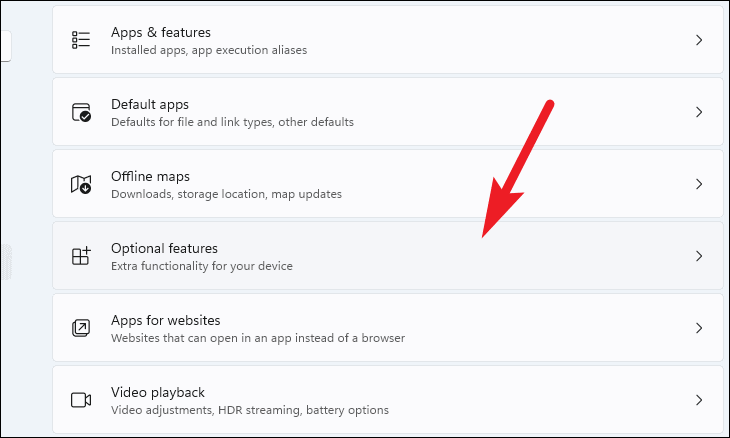
Step 4: Click the View features button under the Add an optional feature section.
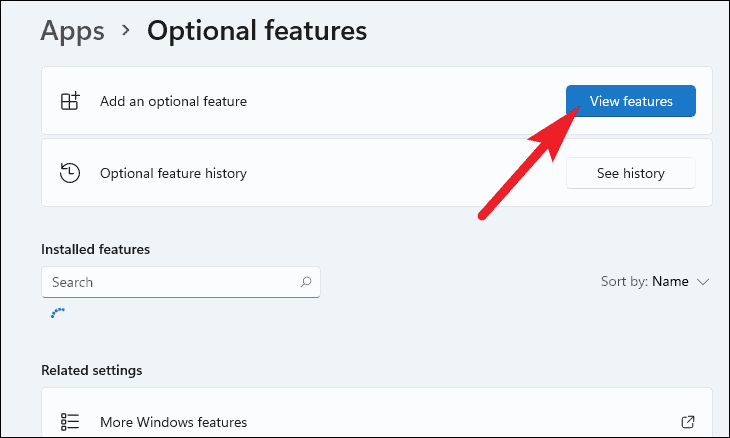
Step 5: In the search bar, type RSAT to filter the list of features.
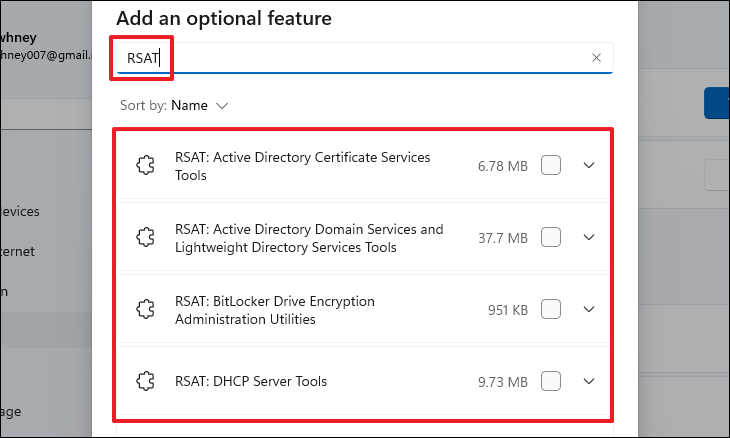
Step 6: Select the RSAT components you wish to install by checking their corresponding boxes. After making your selections, click Next.
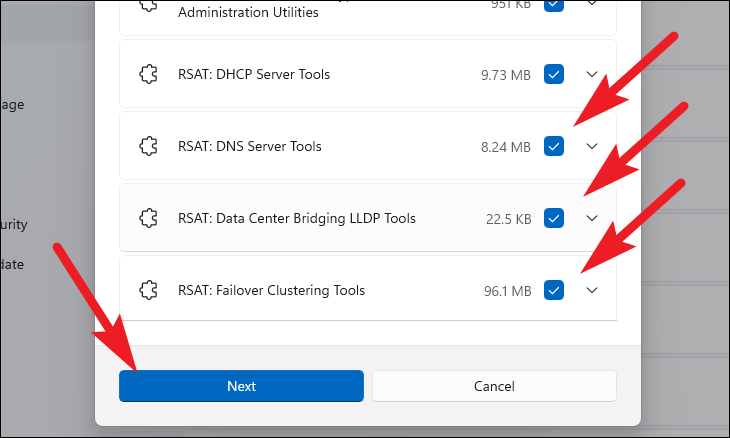
Step 7: Review the selected features. If you need to modify your choices, click Edit or add more optional features. If everything looks good, click Install to initiate the installation.
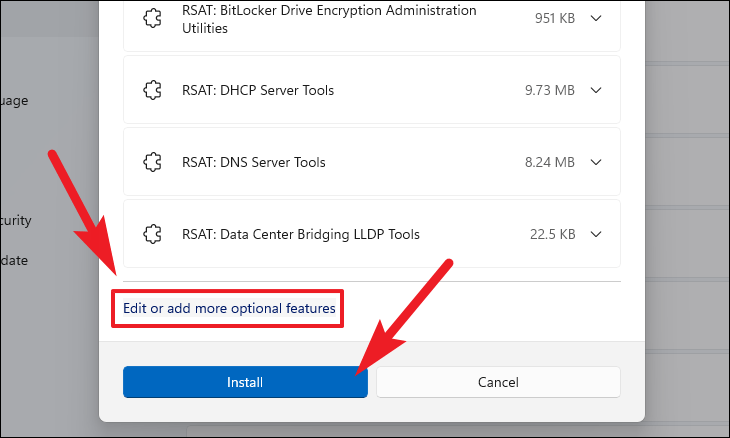
Step 8: The installation will begin and may take a few minutes. You can monitor the progress on the Optional features page.
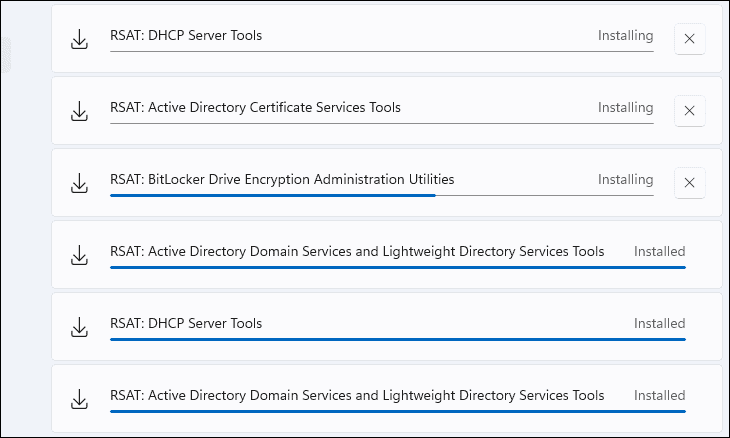
How to Access RSAT Tools in Windows 11
After installing RSAT tools, you can find them in the Windows Tools folder.
Step 1: Click the Start Menu icon on the taskbar.
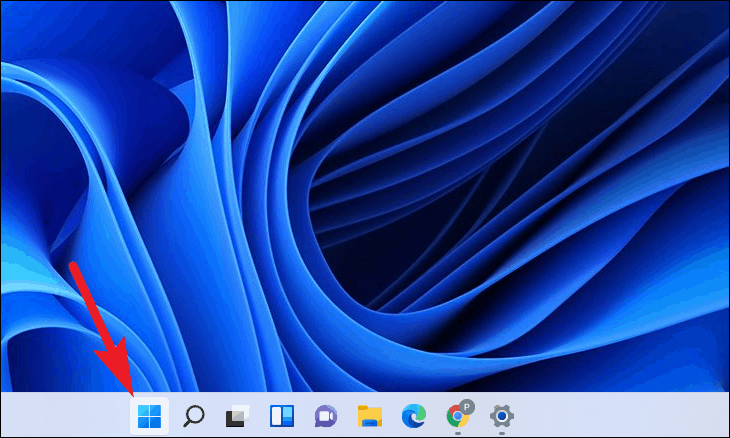
Step 2: Click on All apps at the top-right corner of the Start menu.
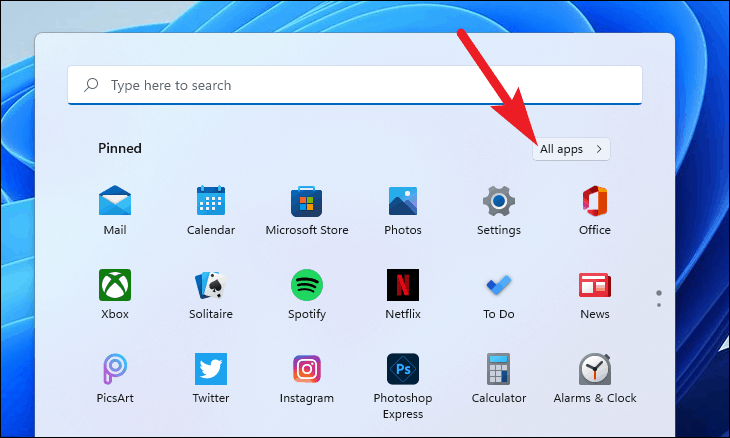
Step 3: Scroll down and select Windows Tools from the alphabetical list.
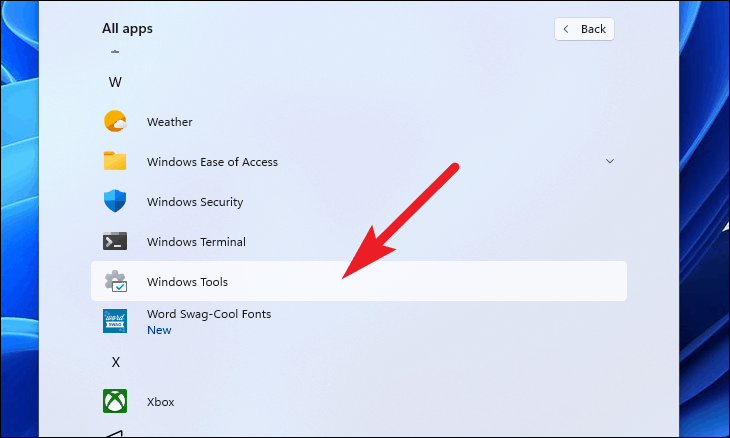
Step 4: In the Windows Tools window, you'll find all the RSAT components you've installed. Double-click any tool to launch it.
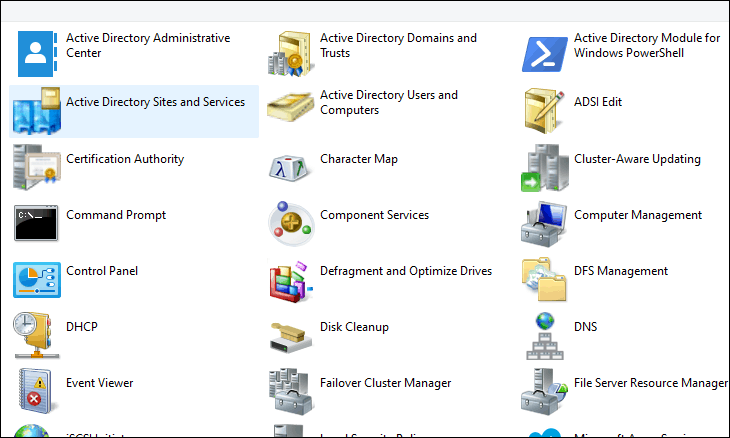
By following these steps, you can effectively install and access RSAT tools on your Windows 11 PC, allowing you to manage server roles and features directly from your workstation.







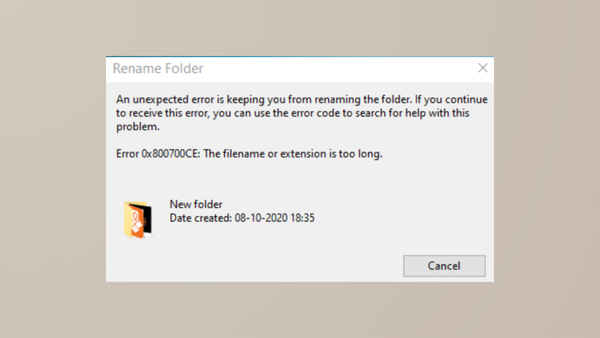
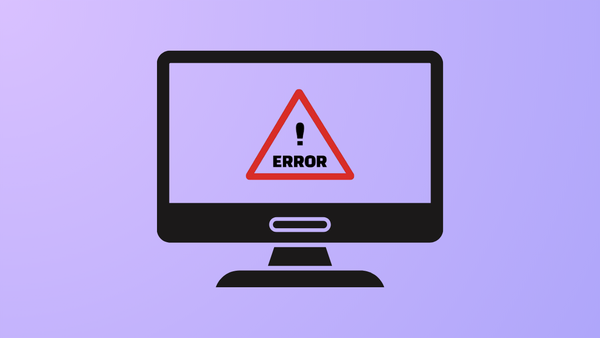
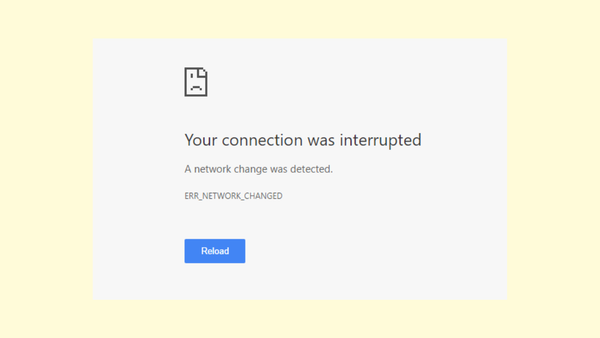
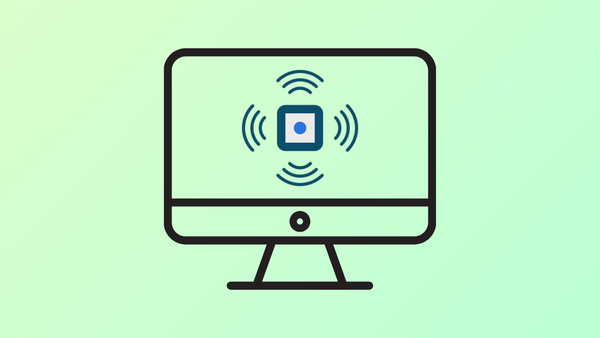
Member discussion